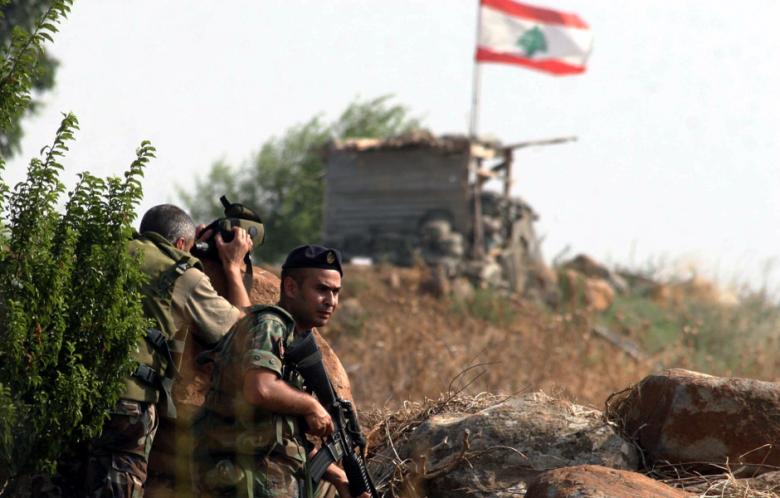Gunfire was exchanged on the Israeli-Lebanese border Sunday, a day after the death of prominent Lebanese militant Samir Qantar in Syria in an alleged Israeli raid.
The Israeli army said three rocket shells were fired on northern Israel from southern Lebanon.
The rocket was launched from the Lebanese city of Tyre, AFP quoted a Lebanese source as saying. Hezboallah has not claimed responsibility for the rocket attacks.
Spokesperson of the Israeli army Avichaey Adraee said they responded by firing artillery shells into southern Lebanon. No injuries were reported from both sides. Two cities in northern Israel opened their bomb shelters, despite not receiving instructions to do so.
Lebanese Brigadier Hesham Geber rejected the possibility that Hezbollah could be behind these rocket attacks. “Hezbollah does not launch useless rockets without targets,” Gaber told Daily News Egypt, noting that a third party is behind those shells to implicate inner Lebanese parties.
Local reports said the National Liberation Front of Palestine may be involved in the attacks, but the group denied the reports, saying that they only carry out operations from inside Palestine, according to Gaber.
The exchange of attacks took place just one day after the killing of Qantar in the Jaramana district in Damascus.
“Two Israeli warplanes carried out the raid, which targeted the building in Jaramana, and struck the designated place with four long-range missiles,” the pro-Bashar Al-Assad National Defence Forces said. Hezbollah accused Israel of targeting Qantar in a formal statement.
Leader in a pro-Syrian regime militia Farhan Al Sha’alan was also killed in the same raid.
Commenting on Qantar’s death, Israeli Minister of Involvement, Construction, and Housing Yoav Gallant told Israel Radio that he is neither confirming nor denying anything to do with this matter.
Qantar was imprisoned in Israel for a 1979 attack in Nahariya, and was released as part of the exchange deal Israel negotiated for the bodies of Israeli soldiers Ehud Goldwasser and Eldad Regev in July 2008. After his release, he was believed to be one of Hezbollah leaders.


